
The Dallas Stars are once again considered a contender thanks in large part to superstars Tyler Seguin, Jamie Benn and Ben Bishop. However, it will be organizational depth that will determine how far the club goes in coming seasons. Second and third-round picks such as Roope Hintz and Esa Lindell have filled important roles, but looking at who the Stars have passed on with their first-round picks in the past 10 years leaves much to be desired.
Before going any further, it’s important to note that the 2017 and 2018 drafts are being excluded; Miro Heiskanen was a no-brainer at the No. 3 overall pick, and it’s far too early to judge the kind of impacts Jake Oettinger and Ty Dellandrea will have. Further, this list isn’t to judge what the individual could be in five years, but how they are helping the Stars win a Stanley Cup right now.
2016: Riley Tufte (No. 25)
This 6-foot-6 American power forward also fits into the ‘too early to tell’ category but is included solely because of one player who was left on the board when he was picked. Alex DeBrincat was taken by the Chicago Blackhawks 14 picks later and posted an eye-opening 41 goals in just his second NHL season.
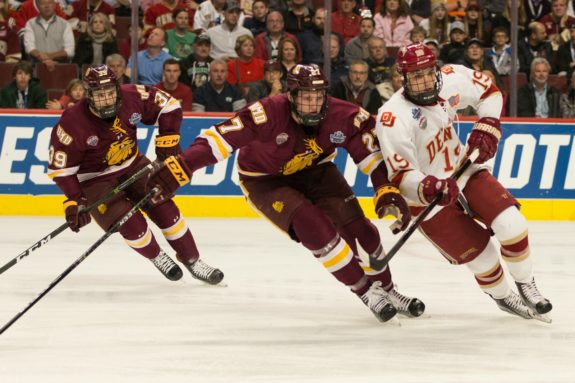
Tufte has played an integral part in Minnesota-Duluth’s back-to-back Frozen Four championships—and could very well turn out to be a huge asset to the Stars—but the thought of missing out on a young 40-goal scorer is painful. The window for Dallas is now, so the longer Tufte takes to crack the NHL roster, the more this conversation will persist.
2015: Denis Gurianov (No. 12)
The first of two strong Russian wingers on this list, Gurianov still has loads of potential to become an impact player in the big league. His 109 points in 188 AHL games, including 48 in 57 last season, speaks volumes to what he could become. But it’s his lack of production during several brief call-ups that is concerning.
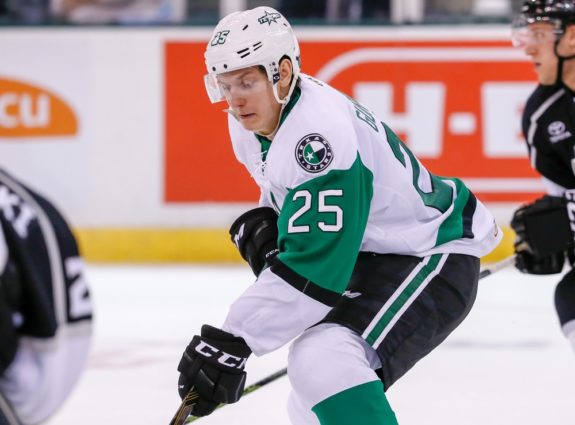
In the 2015 draft, Dallas passed up on the likes of Jake DeBrusk, Mathew Barzal, Kyle Connor, Thomas Chabot, Colin White and Brock Boeser. Any one of these players would likely be helping the big club win now, so Stars fans should hope Gurianov is able to find his game at the NHL level next season.
2014: Julius Honka (No. 14)
Honka is an interesting prospect; he’s shown flashes of brilliance throughout his three years in Dallas but has never been able to maintain it long enough to secure a top-four role on the blue line. And, because of his highly offensive style of play, he doesn’t have much value when he’s stuck on the third pair. Additionally, with John Klingberg, Miro Heiskanen and Esa Lindell safely controlling three of those top four spots, Honka has his work cut out for him if he wants to stick with the Stars.
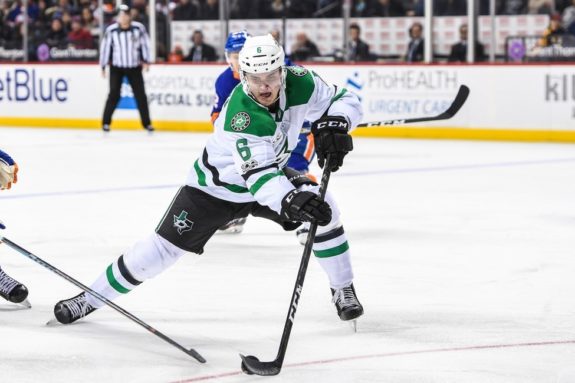
It’s not difficult to see why Honka’s name has increasingly crept up in trade talks over the past year, but the Stars will never get back the kind of value they passed on in the first round of the 2014 draft. Among the names taken after Honka were David Pastrnak, Dylan Larkin, Alex Tuch and Nick Schmaltz. With the Stars desperate for additional offense, picturing Pastrnak or Larkin on a line with Tyler Seguin is enough to make any hockey fan salivate.
Related: Julius Honka Stifled by the Stars
2013: Valeri Nichushkin (No. 10)
In all fairness, almost any NHL club would have taken a chance on him, but the Valeri Nichushkin experiment is on its last legs. The 6-foot-4 Chelyabinsk native was garnering comparisons to Evgeni Malkin at the time of the 2013 draft but hasn’t scored a goal in his last 83 games (676 minutes) dating back to the 2015-16 season. He also went the entire 57 games this season without a single penalty. Together, this shows that Nichushkin wasn’t scoring and also wasn’t getting to the dirty areas of the ice.
Adam Gretz wrote for Pro Hockey Talk on NBC Sports:
Since the NHL started officially logging time-on-ice numbers, the most minutes a player has played in a full season without registering either [a point or a penalty], was 464 minutes by Kevin Porter in 2015-16 in 41 games with the Pittsburgh Penguins.
Prior to the 2018-19 season there only six players in NHL history that played in at least 50 games, scored zero goals, and recorded fewer than 10 penalty minutes, and only two that had fewer than five (Carl Gunnerson’s zero goals and four penalty minutes with the Blues in 2016-17; Rob Scuderi had zero goals and only two penalty minutes in 53 games with the Penguins in 2013-14).Source – ‘Stars’ Nichushkin having historically uneventful (and dull) season’ – NBC Sports – Adam Gretz – 03/16/2019
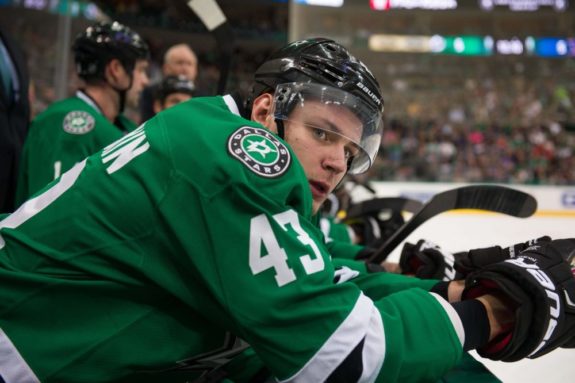
Stars fans hope Nichushkin can find his game from his rookie season when he put up 14 goals and 34 points in 79 games, but he looks as if he has lost all confidence and has no idea how to get it back. Meanwhile, Max Domi, Alexander Wennberg, Nikita Zadorov, Anthony Mantha and Shea Theodore have found immense success after being drafted later than Nichushkin. Given that talent, Nichushkin will be considered a massive disappointment if he can’t return to form. It is important to note that the Stars also picked Jason Dickinson with the 29th overall pick in the 2013 first round; if Dickinson can maintain his play from these past playoffs, it will ease the blow of Nichushkin’s selection.
2012: Radek Faksa (No. 13)
Radek Faksa is the only player on this list that has proven to be a solid first-round pick. He fits the role of a two-way forward perfectly and can slide up and down the lineup as needed. Additionally, following his third-straight 30-point season, he only looks to be getting better with experience.
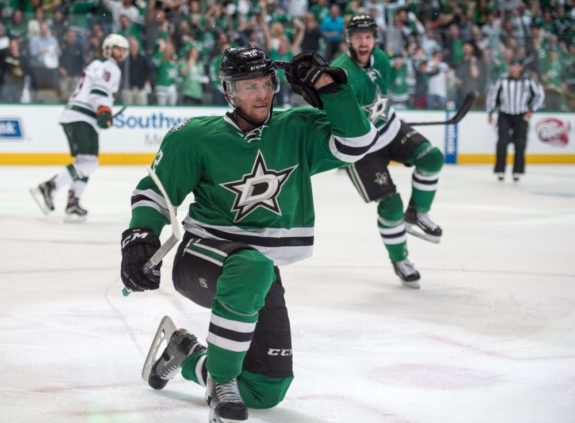
The downside, though, is that the Stars would benefit from their third-line center producing more in the 20 to 25-goal range rather than the 15 goals Faksa put home last year. Other options the Stars had in the 2012 first round that would have brought more offense were Tomas Hertl, Teuvo Teravainen and Tom Wilson. The counterargument can be made that those individuals wouldn’t fill the role that Faksa excels at, but it’s still interesting to speculate.
2011: Jamie Oleksiak (No. 14)
‘The Big Rig’ is a fantastic sixth or seventh defenseman for any NHL club; he’s big, well-rounded defensively and takes away a lot of time and space from opposing skill players. But the purpose of the first round isn’t to find bottom pair defenseman. There were much better options available at the time of his drafting, and yet the Stars chose him anyway.
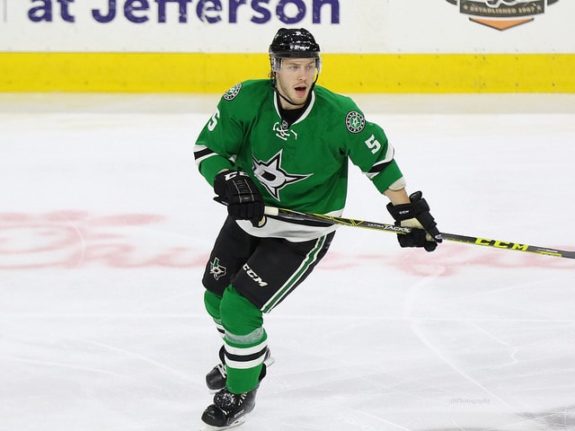
Just some of the remaining options in 2011 were Nikita Kucherov, J.T. Miller, Rickard Rakell, Victor Rask and Johnny Gaudreau. Oleksiak wasn’t a complete miss—he currently fills a role in Dallas, which is more than can be said about some players on this list—but the pattern of missing out on all-star talent year after year is irritating.
2010: Jack Campbell (No. 11)
This is where things get uncomfortable for Stars fans. There’s an unwritten rule of drafting that goalies only go in the first round if they’re sure-things. Jack Campbell was a great prospect in 2010, but he was not a sure thing. This should have been enough to dissuade scouts, but the Stars took him with the 11th overall pick anyway. His stint with Dallas lasted only one game as he was eventually traded away for a seventh-round pick, Nick Ebert, of the Los Angeles Kings. Ebert would spend one season with the Stars’ AHL affiliate before heading overseas.
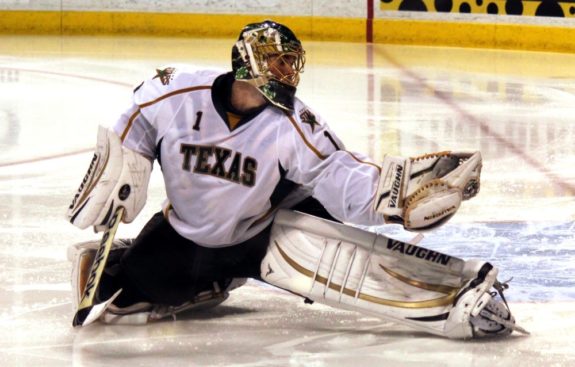
Campbell has since made a decent name for
himself as Jonathan Quick’s backup in Los Angeles, but the Stars got no value
out of the 11th overall pick. It only gets worse when looking at who
was picked after him: Vladimir Tarasenko, Cam Fowler, Jaden Schwartz, Evgeny
Kuznetsov, Kevin Hayes, Brock Nelson and Charlie Coyle were all selected later
in the same round. Such a deep draft and the Stars got nothing. Of course, this
wouldn’t look so bad if the same thing hadn’t happened one year prior.
2009: Scott Glennie (No. 8)
Scott Glennie was another example of a player that a lot of teams would have bit on; after all, lack of ability wasn’t the driving force behind his burial in the minors. The Canadian forward played both center and wing during his junior career but struggled with a string of injuries once he turned pro. As a result, Glennie also only played one NHL game with the Dallas Stars and has suited up for none since departing the organization. The Stars could have walked away with players like Ryan Ellis, Nick Leddy, Chris Kreider or Ryan O’Reilly, but, again, came away with nothing.
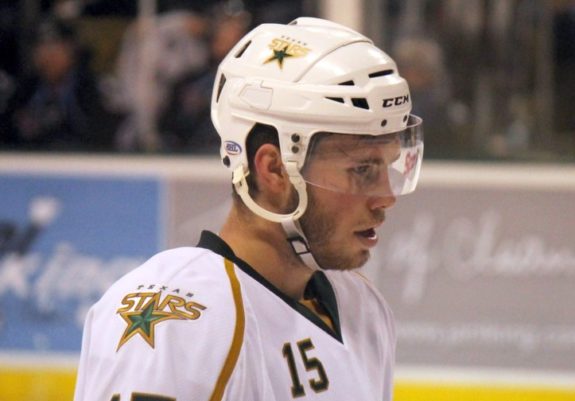
Related: What Ever Happened to Scott Glennie?
Drafting is far from a perfect science—teams regularly swing and miss on high picks—but the Stars have done so far too consistently. It will be years before we know how the Stars’ 2019 first round pick will turn out, but history says to be cautious.